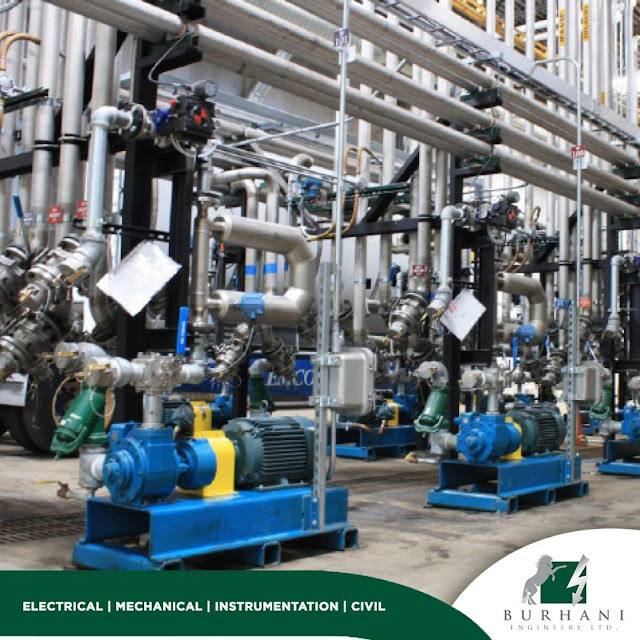How do the best civil engineering companies in Kenya ensure quality control ?
From designing and constructing infrastructure to creating sustainable solutions, civil engineering projects make up the backbone of our society. The quality and reliability of these structures are not just technical concerns but matters of public trust and safety. The best civil engineering companies in Kenya understand this responsibility deeply. They employ rigorous quality control measures at every stage of their projects, ensuring that their work not only meets but exceeds industry standards. Here, we share some of the strategies that these companies follow -

- Quality control with right hiring and training
Quality
control doesn't begin at the construction site; it is deeply ingrained in a
company's ethos. The best civil engineering companies cultivate a culture that
prioritises quality across the entire project lifecycle.
●
Rigorous recruitment: Leading companies meticulously select highly
qualified and experienced engineers, inspectors, and technicians who are
well-versed in quality standards. They understand that the calibre of their
staff directly impacts the success of their projects.
●
Continuous training: To stay at the forefront of the industry, top
firms invest heavily in ongoing training programmes. These initiatives ensure
that staff remain updated on the latest advancements in construction
techniques, materials, and quality control methodologies. Continuous
professional development is key to maintaining high standards.
●
Clear communication: Open and effective communication channels are
maintained among all stakeholders, from designers and engineers to contractors
and inspectors. This transparency fosters collaboration and ensures that
potential issues are identified and resolved promptly, avoiding costly delays
and ensuring that the project stays on track.
- Proactive quality control measures
The
best civil engineering companies don't wait for problems to arise; they
implement proactive quality control frameworks to prevent issues before they
occur. This proactive approach includes several crucial elements:
●
Thorough design reviews: Detailed design reviews are conducted at
various stages of the project to identify and address potential flaws. This
collaborative process involves engineers, architects, and other specialists who
work together to minimise the risk of errors and ensure that the design is
robust and fit for purpose.
●
Stringent material selection: The selection of materials is critical
to the success of any construction project. Rigorous testing and quality
assurance procedures are implemented to ensure that all materials meet the
required standards and are suitable for their intended use. This careful
selection process helps prevent issues such as premature wear or structural
failure.
●
Quality control plans: Before construction begins, companies establish
comprehensive quality control plans. These plans outline inspection procedures,
testing protocols, and documentation requirements, providing a clear roadmap
for maintaining quality throughout the project. This level of planning ensures
consistency and accountability at every stage.
- Quality control during the
construction phase
To
ensure that everything goes according to plan, top firms implement robust
quality control systems during this critical period:
●
Qualified inspectors: Experienced and certified inspectors play a
crucial role in verifying that construction complies with the approved plans
and specifications. They conduct regular inspections to meticulously examine
materials, workmanship, and adherence to safety protocols. This attention to
detail is essential for maintaining high standards and ensuring the safety and
durability of the finished structure.
●
Non-destructive testing: Advanced non-destructive testing techniques,
such as X-rays or ultrasonic testing, are employed to assess the integrity of
welds, concrete, and other structural elements. These techniques allow
engineers to detect potential issues early, before they become serious
problems, thus ensuring that the structure remains safe and sound.
● Documentation and corrective actions: Detailed records of inspections, test results, and any identified deficiencies are maintained throughout the construction phase. This thorough documentation ensures that any issues are promptly addressed and rectified, with systematic processes in place to ensure that corrective actions are taken without delay. This commitment to accountability helps prevent small issues from escalating into larger, more costly problems.
Looking for civil engineering companies in Nairobi that prioritise safety?
Explore the civil engineering solutions from Burhani Engineers. With a track record of successful projects, the company ensures that every structure they work on meets the highest safety standards. Their team of experienced professionals is trained to identify potential risks and implement advanced safety measures that exceed industry standards. By employing rigorous quality control processes and state-of-the-art technology, Burhani Engineers proactively address safety concerns before they become issues.


Comments
Post a Comment